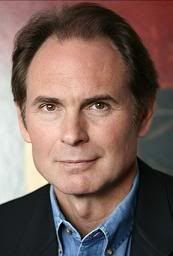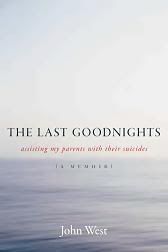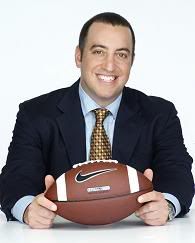John West, the author of The Last Goodnights —a memoir of how he assisted both of his parents with their suicides, discusses his journey with Write On! Online. The Last Goodnights is the first book of its kind to be published in 25 years, and one of only three such books ever published. West practiced law and lived in Seattle for 15 years, and now lives in Los Angeles, where he is working on a variety of other writing projects and is helping friends get their films financed and produced.
Why did you write The Last Goodnights?
It was a story that needed to be told, on several levels. Most importantly, I knew it would help wake people up and get them to face the reality and hypocrisy in the current state of the law regarding death with dignity. Not allowing freedom of choice to people who are dying, not allowing them to end their suffering when they decide they are ready, is to my mind an almost barbaric practice. Doctors “help along” their friends, relatives, and special patients all the time. They have done this for years, as have other health professionals, and as have the loving and caring friends and relatives of the dying. This is well known. But to criminalize this kind of care means to push it into the back alleys, the way abortion once was … and no sane person wants to go back to those days. It’s time—past time—to shine the light of rational thought on this issue, get the debate elevated above the emotional and religious quagmire in which it is currently mired, and work to get other states (besides Oregon and Washington) to make death with dignity legal and safe.
On another level, I wrote it to honor the bravery of the people I loved who made this ultimate choice: my parents. Their professional and personal lives revolved around medical education and helping others, and this book is my way of paying tribute to them. It also is my way of continuing the work that they had done for so long, and which I have—in other ways—also done.
Last, but not least, I always thought (being as objective as I could) that it was a powerful and gripping story. Let’s not forget the power of a well-told story. We all have encountered “meaningful” books that were tedious or even painful to slog through, but I felt that this story would grab and intrigue people, and that it would be the best way to communicate the more philosophical aspects involved. I certainly didn’t write a mournful tale of woe, in part because the situation my parents and I found ourselves in was not really all that mournful or woeful. It was sad at times, of course. Even tragic, perhaps, in some ways, but tragedy can be galvanizing, intriguing, powerful. People enjoy murder-mystery stories, and in some ways my book is that kind of story. Except that it’s not a “who-dunnit” but a “why-dunnit” and “how-dunnit.” (Also, it’s important to know that the book contains quite a bit of humor—mostly rather dark, of course.)
What was the greatest challenge about writing something so personal? How did you overcome it? How did you feel after completing it?
There were many challenges, but I felt compelled to tell the story. For one thing, my mother had been very keen on the story being told, and I felt I owed it to her to give it my best shot. Still, every time I sat down to write, I felt I was going through all of those painful events again and again. It was as if I was assisting not with just two deaths, but with hundreds … maybe thousands. The death of loved ones is never particularly easy in any case, so … it was extremely hard to write this. And after completing the writing, I still didn’t feel any real relief because I had so many other complications to deal with: finding an agent, finding a publisher, potential family backlash, the possibility of going to prison … You know, simple things like that. But after each step was accomplished, I felt another huge chunk of weight fall off my shoulders, and when I finally went to NYC this past February, when Good Morning America broke the story, I finally started to feel like a free man (after a mere 10 years). And even so, I still had to wonder if I would be prosecuted, but that hasn’t happened so far.
What was your process for writing it?
My writing process was not very disciplined. Once I decided I was going to write the book, I started making a few notes in secret, but most of the events were simply recalled from memory. Given the intensity of the events, the recall wasn’t difficult. I realized that the old sayings such as “burned into my memory” and “seared into my mind” are not euphemistic. Some memories are that strong. They never leave you.
Sometimes, when I would sit down to write, I simply had to stand back up and walk away. It just wasn’t possible to revisit those events. Other times, I would force myself to at least write something, anything, as long as it had some bearing on the story, hoping to find a way to lure myself back into the hard stuff. That worked occasionally. But mostly, I would write whenever I felt I could muster the energy and focus to handle it, and then I’d plow forward for as long as I could.
There were times I’d get ready to write and suddenly all sorts of other story ideas would come pouring into my head. Typical avoidance, of course, but rather than try to shake them off, I said “OK” to the muses (evil witches though they may have been) and wrote whatever they threw at me. That took some of the pressure off and allowed me to get back to what I needed to work on. It also gave me quite a collection of interesting stories to dip back into, now that I’ve got more freedom to explore them.
I knew I had to do the hardest part first, so I concentrated on getting all of the information written down, and then I went back and worked on things like language, tone, pace, etc., and tried to find a proper place to begin and end. The structure pretty much took care of itself, since the story was basically linear and I knew I wanted to tell it in a straightforwardly journalistic or diaristic way. Once I’d gotten to where I thought it was ready for human consumption, I thought long and hard about who to share it with. Luckily, I had the perfect person handy: a good friend, also a lawyer, literate as hell, someone I felt I could trust completely with my very sensitive manuscript … and my own very sensitive and raw psyche. She helped me fine-tune a few things, gave me valuable reassurance, as well as thoughtful criticism, and was an all-around excellent editor and guide.
Ultimately, I took it to two different professional editors, at different times, and learned an awful lot from them. I recommend it to every writer. A talented editor is a golden resource, for myriad reasons.
How did you go about getting it published?
Very long story made as short as I can: I had a good friend who helped me get an early draft to one of the top agents in the business. Unfortunately, this agent (or his designated manuscript reader for that day) found the manuscript to be in too rough a form for their elevated tastes and so they said “no thanks.” Shortly thereafter, I took it to another editor (the second of the two I’ve already mentioned) and not only got some excellent help on the editing side of things, but also got an introduction to another agent, a relatively new solo operator in NYC. She liked the manuscript and took me on as a client, and things seemed to be going well, especially after we got strong interest from one of the larger publishing companies. But after we had a meeting with several of their top people, they passed. My guess is that their marketing people (all very young, it seemed to me) had no idea what to make of the story, or how to sell it. It just was beyond their youthful minds to think that such a topic could interest people and sell books. (I always thought that the sensational aspect the story alone would make it worth publishing, but maybe that’s why I’m not a publisher.) My agent then seemed to quit on me, the wind out of her sails. I was discouraged, too, and let some time go by.
Eventually I got re-energized, decided that I was the best possible advocate for the book, fired the agent, and got on the phone. After all, as an attorney I had a great deal of experience representing others, so I just put on my lawyer hat (so to speak) and went after it. I didn’t even bother going back to the “big time” agent from before, because I had already decided that I was the right person to do it. And within a few months, after researching what kinds of publishers might be the right sort, and getting suggestions from people in the business, I finally found the people who “got it” and a deal was quickly done.
What was your favorite part of the process?
Different parts of the process had their high-points. There were some magical moments in the writing process, where just the right word or image presented itself to me, unbidden. There were a few “lightbulb” moments during the editing process that were a tremendous rush. Getting the publisher’s “we want to publish your book” phone call. (Huge favorite. And calling my closest friends to share that long-anticipated news was wonderful!) Receiving the bound galley proof of the book. (Truly amazing. I finally understood what parents feel when they see that first sonogram of little junior in utero.) Getting the publisher’s phone call saying, “NPR and Good Morning America are jousting over who gets to break the news.” (Wow!) Getting the box with my copies of the final product in it. (The best present-opening ever.) Getting to talk openly, finally, about something so important to me that I’d had to keep so secret for so long. And the tremendously positive feedback from the public—not just from the obvious types of people you’d expect (liberals, urbanites, etc.), but from people in small towns and people who identify themselves as conservative and religious, etc. And even though I had believed strongly that that would happen, when it actually did … that was really wonderful.
How do you balance writing with the other aspects of your life?
I don’t write on a regular basis. I’m very sporadic. I’ll write in solid clumps of time and then stop. I guess that means I don’t balance life and writing very well. (I understand that this puts me in good company, though.) Ask me again after I’ve written a few more things. I am trying to work in a more balanced way, though, now that I’m not writing something that’s so intensely personal and demands almost total secrecy. It’s important to have as much balance in your life as you can, whatever it is that you do. Get to the gym on a regular basis, call your friends, that sort of thing. Common sense stuff that we all know, but sometimes lose track of.
Advice for writers?
I guess my advice for writers is really the same as my advice for everyone: Do what you love. Life is short. And while every job has its share of hard work, boredom, and drudgery, if you’re doing what you love, if you’re spending most of your time on things that are meaningful to you, then you’re really living your life, not just enduring/surviving/wasting it. Remember to be good to yourself. Try new things, to keep your mind and heart fresh. Take a day off now and then. Walk around a new part of town. Try a new ethnic food. Go to a museum and look at just one thing for a solid hour. Experiment! And don’t forget to be good to the rest of the world. Pick up a bit of trash. Visit a shut-in. Do a spot of volunteering. Fewer and fewer people seem to do these kinds of things, but that makes them even more important.
What do you know now that you wish you knew when you first started writing?
A lot of things! But then, if I’d known them beforehand, this wouldn’t have been the amazing adventure of discovery that it’s been. The wild ride would have been tamer, and that rather misses the point, doesn’t it? So I guess I’ll just be glad that I know them now. Maybe my next rides will be smoother. Although … I’m sure there’s still a lot that I don’t know, so I guess I can expect a few more adventures before I’m through. I certainly hope so!












Comments are closed.
[…] John West, The Last Goodnights […]
[…] John West’s book‚ÄîThe Last Goodnights‚Äîhas been adopted by two different UCLA classes, and is being considered by several other classes there, as well as other universities and colleges. Check out the Write On! interview with John. […]